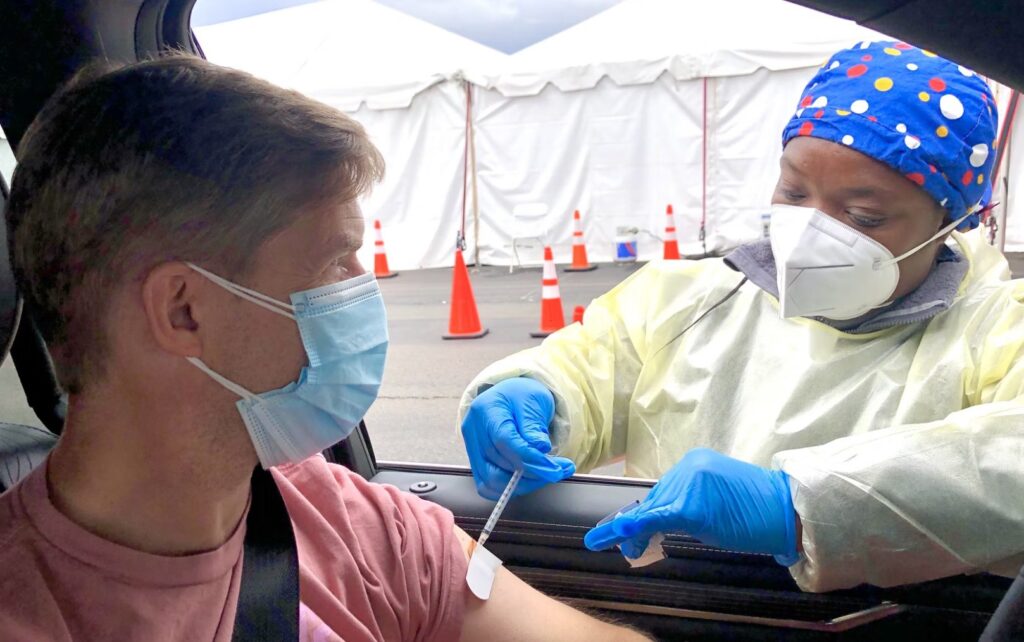The recent ruling from the Ninth Circuit Court of Appeals marks a significant win for individual rights and medical freedom, particularly in the context of healthcare. The court reversed a lower court’s injunction that blocked Montana’s House Bill 702 (HB 702), a law that emerged as a response to the increased calls for vaccine mandates during the COVID-19 pandemic. The sentiment surrounding this legislation reflects a broader concern among Montanans about perceived federal overreach regarding personal choice and medical privacy, which had gained heightened scrutiny during the pandemic’s peak when both the federal government and Democratic leaders vigorously supported vaccine mandates. HB 702 explicitly prohibits any person, government entity, or employer from denying an individual access to services, employment, or public accommodations based solely on vaccination status or possession of an immunity passport.
HB 702 also includes specific stipulations related to immunizations, notably preventing mandates for vaccines that are under emergency use authorization or still in the trial phase. However, certain exemptions persist, especially for vaccinations required in educational settings and by licensed care facilities to align with federal regulations from agencies like the Centers for Medicare and Medicaid Services (CMS) and the CDC. Additionally, healthcare facilities retain the option to voluntarily request vaccination status from employees to protect patient and staff welfare. Should an employee choose not to disclose this information, these facilities can assume the individual is unvaccinated and must explore reasonable accommodations to safeguard public health without resorting to outright vaccine mandates.
The legal challenge to HB 702 was led by Montana Attorney General Austin Knudsen, who contested the district court’s ruling that claimed the bill contradicted federal laws, particularly the Americans with Disabilities Act (ADA) and the Occupational Safety and Health Act (OSH Act). Plaintiffs—including healthcare providers and immunocompromised individuals—argued that HB 702 conflicted with federal requirements mandating employers to ascertain employee vaccination statuses to provide proper accommodations for those with disabilities, resonating with the goals of the ADA and OSH Act. The lower court had seemingly favored this perspective, leading to an injunction against HB 702, but the Ninth Circuit ultimately found their rationale unpersuasive.
In the court’s ruling, Judge Daniel Bress articulated that the claims of a conflict between HB 702 and federal law were speculative at best. The Ninth Circuit outlined that the provisions in HB 702 empower healthcare establishments to implement necessary safety protocols without infringing on employee privacy rights or creating discriminatory practices. Notably, the ruling emphasized that the law’s framework encourages healthcare facilities to pursue reasonable accommodations for employees while refraining from enforcing mandatory vaccination or employment cessation due to vaccination status. This aspect underscores the balance that the Montana legislature aimed to achieve between individual rights and the public health mandate.
The Ninth Circuit also rejected claims that HB 702 breached the Equal Protection Clause, which drew attention to the varying regulatory requirements across different healthcare environments. The court differentiated between healthcare facilities based on how they could exhibit differing levels of risk, reaffirming Montana’s authority to customize regulations to address specific situational needs. The court thus positioned itself firmly on the side of Montana’s right to balance personal medical freedoms with public health imperatives, notwithstanding the broader context of federal regulations.
Ultimately, the Ninth Circuit’s ruling concluded that neither the ADA nor the OSH Act preemptively invalidates HB 702 in healthcare contexts. The court determined that the plaintiffs failed to provide evidence demonstrating that HB 702 creates an authentic conflict with the ADA under any circumstances, particularly in its broad application across healthcare settings. Furthermore, the appellate panel stated that the district court’s broad characterization of the conflict appeared speculative and inadequate to warrant an injunction. By upholding HB 702, the Ninth Circuit reinforced the notion that individual rights concerning medical decisions continue to hold legal legitimacy, particularly amid evolving public health narratives.

